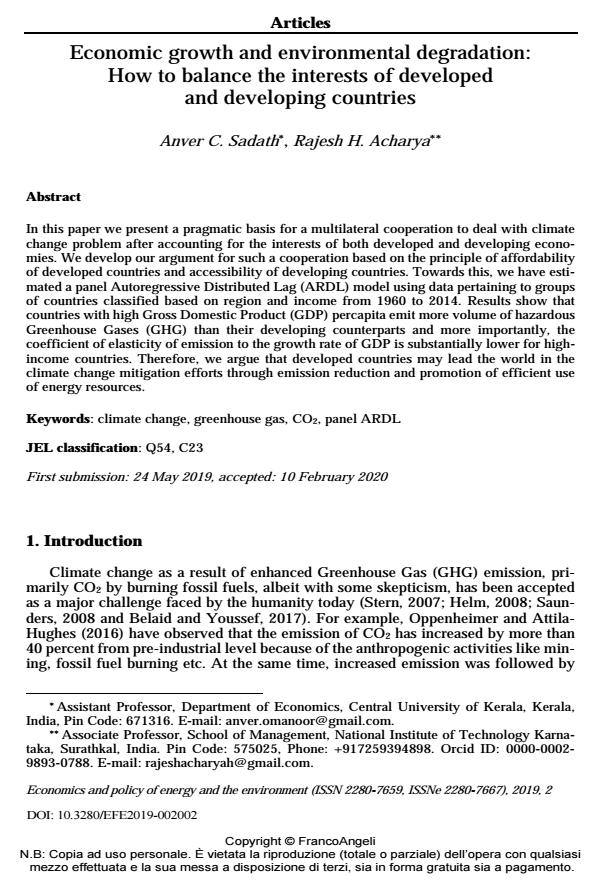Economic growth and environmental degradation: How to balance the interests of developed and developing countries
Titolo Rivista ECONOMICS AND POLICY OF ENERGY AND THE ENVIRONMENT
Autori/Curatori Anver C. Sadath, Rajesh H. Acharya
Anno di pubblicazione 2020 Fascicolo 2019/2
Lingua Inglese Numero pagine 23 P. 25-47 Dimensione file 237 KB
DOI 10.3280/EFE2019-002002
Il DOI è il codice a barre della proprietà intellettuale: per saperne di più
clicca qui
Qui sotto puoi vedere in anteprima la prima pagina di questo articolo.
Se questo articolo ti interessa, lo puoi acquistare (e scaricare in formato pdf) seguendo le facili indicazioni per acquistare il download credit. Acquista Download Credits per scaricare questo Articolo in formato PDF

FrancoAngeli è membro della Publishers International Linking Association, Inc (PILA), associazione indipendente e non profit per facilitare (attraverso i servizi tecnologici implementati da CrossRef.org) l’accesso degli studiosi ai contenuti digitali nelle pubblicazioni professionali e scientifiche.
In this paper we present a pragmatic basis for a multilateral cooperation to deal with climate change problem after accounting for the interests of both developed and developing economies. We develop our argument for such a cooperation based on the principle of affordability of developed countries and accessibility of developing countries. Towards this, we have estimated a panel Autoregressive Distributed Lag (ARDL) model using data pertaining to groups of countries classified based on region and income from 1960 to 2014. Results show that countries with high Gross Domestic Product (GDP) percapita emit more volume of hazardous Greenhouse Gases (GHG) than their developing counterparts and more importantly, the coefficient of elasticity of emission to the growth rate of GDP is substantially lower for highincome countries. Therefore, we argue that developed countries may lead the world in the climate change mitigation efforts through emission reduction and promotion of efficient use of energy resources.
Parole chiave:Climate change, greenhouse gas, CO2, panel ARDL
Jel codes:Q54, C23
Anver C. Sadath, Rajesh H. Acharya, Economic growth and environmental degradation: How to balance the interests of developed and developing countries in "ECONOMICS AND POLICY OF ENERGY AND THE ENVIRONMENT" 2/2019, pp 25-47, DOI: 10.3280/EFE2019-002002